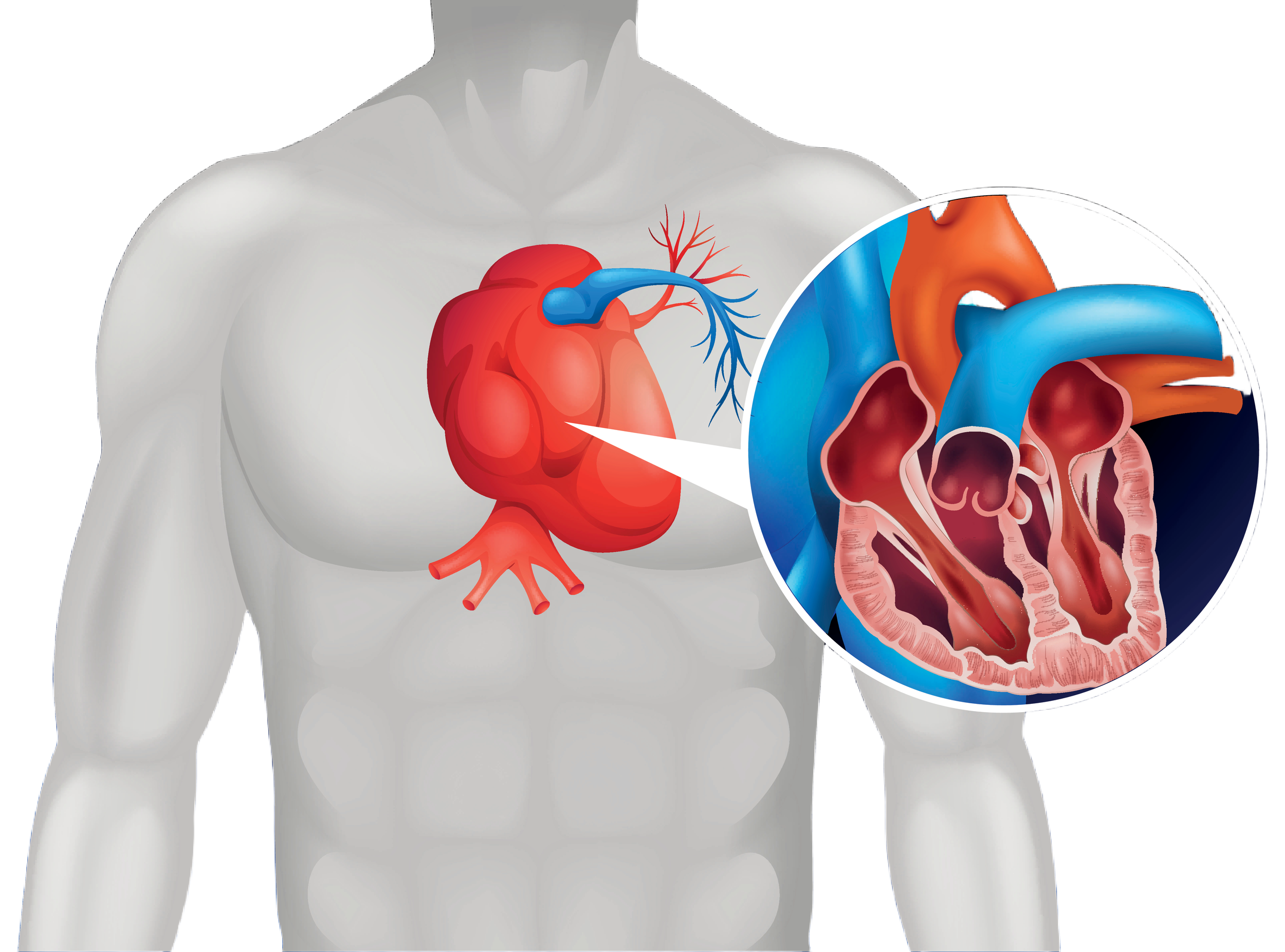
Protect Your Heart. Detect Heart Failure Early
Advanced echocardiography and vascular imaging to evaluate your heart’s function, detect early signs of heart failure, and help you take proactive steps to preserve your cardiovascular health.
Heart Failure Often Develops Silently
Heart failure affects millions of adults and can develop gradually, often without noticeable symptoms until it becomes serious. Early detection through imaging allows you and your doctor to intervene before irreversible damage occurs, preserving heart function and improving long-term outcomes.
Key Facts / Statistics:
About 6.2 million adults in the U.S. have heart failure, and prevalence is increasing (American Heart Association, 2024)
Early stages may present no symptoms, making proactive screening critical
Echocardiography and vascular imaging can detect functional abnormalities before symptoms appear
Why Screening Helps:
Identifies reduced ejection fraction, valve abnormalities, or structural heart changes early
Comprehensive Testing to Evaluate Heart & Vascular Health
Our heart failure function screening combines advanced echocardiography with vascular imaging to evaluate your heart’s structure, pumping efficiency, and overall cardiovascular health. Detecting early changes allows timely interventions that preserve heart function and reduce the risk of serious cardiac events.
Included Tests:
Echocardiogram (Heart Ultrasound)
Assesses heart chambers, valves, and ejection fraction
Detects early signs of heart failure or structural abnormalities
Guides treatment decisions to maintain optimal cardiac function
Carotid Intima-Media Thickness (IMT) Measurement
Measures early arterial thickening as an indicator of atherosclerosis
Provides insight into overall cardiovascular risk and vascular health
Lower Extremity Arterial Doppler
Evaluates blood flow in the legs
Detects peripheral artery disease (PAD), which can worsen heart function and contribute to complications
Are You at Risk for Heart Failure?
Heart failure can develop silently, making early detection essential. Screening is especially important if you have one or more of the following risk factors:
Risk Factors:
Age 50+ — risk increases with age
History of heart disease or prior heart attack
High blood pressure (hypertension)
Diabetes or metabolic syndrome
High cholesterol or vascular disease
Family history of heart failure or cardiovascular disease
Symptoms such as shortness of breath, fatigue, or leg swelling
Expert Care. Accurate Heart Assessments.
At Blackpoint Diagnostics, we combine hospital-grade imaging technology with the expertise of board-certified cardiologists and experienced sonographers. Our focus is early detection and prevention of heart failure and vascular complications.
Key Advantages:
Comprehensive, hospital-grade imaging: echocardiogram, carotid IMT, and lower extremity arterial Doppler
Non-invasive, painless procedures in a comfortable outpatient setting
Rapid, easy-to-understand results interpreted by specialists
Personalized guidance to prevent progression of heart failure and vascular disease
Trusted by local physicians for preventive cardiovascular care
Supporting Stats / Trust Signals:
Early detection of heart dysfunction can reduce hospitalization risk by up to 50% (American Heart Association)
Over 90% of patients report satisfaction with our screening process
Understand Your Heart Health. Take Action.
After your heart failure function screening, you receive detailed results interpreted by board-certified cardiologists. Our goal is to help you understand your heart and vascular health and guide your next steps.
What Patients Receive:
Comprehensive Report: Summary of echocardiogram, carotid IMT, and lower extremity arterial Doppler findings
Risk Assessment: Personalized evaluation of heart failure and vascular complications
Actionable Recommendations: Guidance on lifestyle changes, medications, or specialist referrals
Peace of Mind: For normal results, reassurance that no immediate intervention is needed
Have Questions? We’ve Got Answers
-
A non-invasive evaluation using echocardiography, carotid IMT, and lower extremity arterial Doppler to detect early signs of heart dysfunction and vascular complications.
-
Yes — all tests are non-invasive, radiation-free, and comfortable. Most screenings take 60 minutes.
-
Adults at risk for heart failure, especially those with age 50+, high blood pressure, diabetes, high cholesterol, or a history of heart disease.
-
Results are reviewed by board-certified cardiologists and delivered in a clear, actionable report, usually within 1–2 business days.
-
You receive personalized recommendations — lifestyle changes, medication adjustments, or referrals to cardiology specialists.
-
While no test can guarantee prevention, early detection and intervention can significantly reduce the risk of progression and hospitalization.






